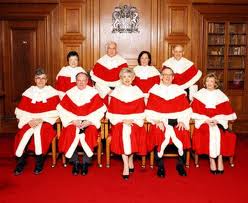Today, here are five useful rules to help skeptical citizens to navigate the maze of politics.
First rule: don’t trust promises made by politicians — that’s just common sense.
Second rule: don’t believe anything you find on a political party website — at its best, it will be balderdash.
Third rule: don’t fool around with politicians via social media — you will never escape from their fundraising embrace.
Fourth rule: when a political leader warns you that the sky will fall if you don’t vote for him or her, don’t be conned — put the warning to the test.
Fifth rule: mistrust conventional wisdom in politics. Here are two examples: Senate reform, and the prospect of a provincial election in Ontario this spring.
According to conventional wisdom, the Supreme Court of Canada dealt the Harper government a body blow on Friday when it gave the back of its hand, unanimously, to the Conservatives’ reference on the Senate.”Supreme Court thwarts Harper’s Senate ambitions,” read the front-page banner in the Globe and Mail. “PM says court ruling means Senate reform ‘off the table,'” said the Waterloo Region Record.
My own sense, as a skeptical citizen, is that if Harper ever had “ambitions” for the upper house — and perhaps he did in the old days when he was still policy-wonking for the Reform party — he abandoned them once he became Conservative leader. Senate reform was a useful light to keep in the Tory window for the reassurance of old Reformers, but it was never “on the table” as Harper government policy.
As PM, he made a couple of gestures by proposing term limits and “consultative” elections, but he never invested the political capital needed to turn these tweaks into law. He had to know when he sent his reference to the Supreme Court what the answer would be: Ottawa can’t mess around with the Senate; significant changes would require constitutional amendments; and that means gaining the support of the provinces (all of the provinces in the case of abolishing the Senate).
I suspect Harper was one of the most relieved people in Ottawa when the court told him: No. It gave him cover to abandon the field of Senate reform (he could say he tried, but the Supremes wouldn’t let him; naughty judges!), which means no constitutional conferences and no tedious negotiations with provincial premiers over the future of an institution for which most Canadians don’t give a tinker’s damn.
As to a provincial election in Ontario, conventional wisdom says it is going to happen this spring. Why? Because Kathleen Wynne’s minority Liberal government is in trouble. Because it is unable to get traction to escape from the aura, and odour, of the Dalton McGuinty-era Liberal scandals. Because the opposition parties want an election (at least Tim Hudak’s Progressive Conservatives do). And because the pundits say Ontario needs an election.
The Liberals are to bring down their 2014 budget on Thursday. That, according to conventional wisdom, will lead to an election.
Maybe that is the way it will play out, but I wonder. Provincial politicians, like federal ones, live and die by opinion polls. Right now, the polls are clear as mud. A spring election might be in no one’s interest. Instead of one winner, it could produce three losers. No party seems to have enough support to improve its position in the Legislature.
The NDP is the critical player, as it has been for the past year or so. The only thing that seems clear from the polls is that Andrea Horwath’s party has lost the momentum it gained following the last election, in October 2011. The New Democrats are standing at 22 or 23 per cent in the polls, which is exactly where they were in the 2011 election.
Why would Horwath, who wields the balance of power, want to risk a spring election that she couldn’t win but could lose badly. The answer: she wouldn’t, unless to protect her leadership against impatient rivals.
Cambridge resident Geoffrey Stevens, an author and former Ottawa columnist and managing editor of the Globe and Mail, teaches political science at Wilfrid Laurier University and the University of Guelph. His column appears each Monday in Waterloo Region Record and Guelph Mercury, He welcomes comments at geoffstevens[at]sympatico.ca.




